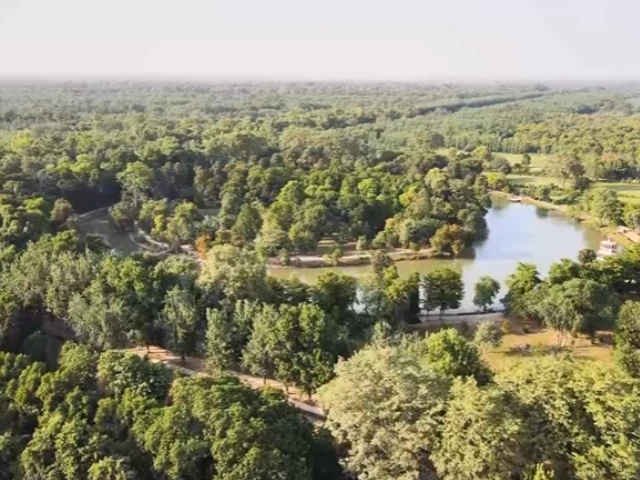Punjab has begun to formulate its long -term forest vision 2050 with the aim of prioritizing forest preservation and ecological balance rather than treating forests solely as a source of wood. The initiative seeks to make forests a central pillar in tackling climate change and strengthening ecological resilience.
To prepare this vision, Punjab Forest Department has collaborated with the International Union for Conservation of Nature (IUCN), which organized a two-day planning workshop in Lahore. The event brought together national and international experts, government officials, academics and community representatives to contribute proposals.
Senior Provincial Minister Marriyum Aurangzeb inaugurated the opening session together with IUCN Asia’s Dr. Satrio Adi Wicaksono, US-based expert Dr. Javed Ahmed, Punjab Forest Secretary Mudassir Riaz Malik and Iucn Pakistan Land representative Mahmood Akhtar Cheema.
Experts unanimously warned that Punjab, without immediate action, would continue to face severe climate -related threats, including devastating floods and prolonged drought. The recommended models such as Byskovbrug, Agroforestry, community -based plantations and carbon credit forestry as viable solutions.
Mahmood Akhtar Cheema from IUCN Pakistan emphasized the role of technology in expanding forest coverage. “IUCN is ready to transfer its global expertise to Pakistan, and Punjab’s efforts in this direction are commendable,” he said, adding that no forestry plan can succeed without participation in society. He also noted that Punjab’s recent conservation efforts in forestry and wildlife had yielded results “over expectations.”
She emphasized that the Punjab government under the head of the chief’s leadership is pursuing a comprehensive environmental policy.
She emphasized initiatives such as the Clean Punjab campaign, Plantation operated, Renewable Energy programs, Environmental Funds and Availing Measures for Air Pollution as a central step towards a greener province.
Punjab Forest Secretary Mudassir Riaz Malik pointed out that while the province spans more than 50 million acres, the forest department controls only 1.65 million acres, of which only 1.25 million acres is wooded. “The remaining land is under private ownership.
Without public participation, expansion of forest coverage will not be possible, ”he said. He also cited the successful census of wildlife and the plant to the Pakistan campaign as examples of effective collaboration with IUCN.
Asim Jamal, manager of the Green Pakistan program, added that a consortium led by IUCN Pakistan is currently preparing political research that will serve as the basis of Forest Vision 2050.
Environmentalists at the workshop repeated the organic benefits of trees and noted that forests reduce flood effects by binding soil, recharge groundwater through rainwater absorption and reducing air pollution.
They underlined the need for urban green belts, Agroforestry on agricultural land and socially led plantations in rural areas.
Experts also highlighted the economic potential of forest products such as honey, fruits and wood for rural livelihoods, while wildlife specialists warned that shrinking forests destroyed habitats for endangered species.
Participants concluded that if implemented effectively, the Forest Vision 2050 could not only expand Punjab’s forest coverage, but also establish the province as a model for climate adaptation and ecological resilience.



